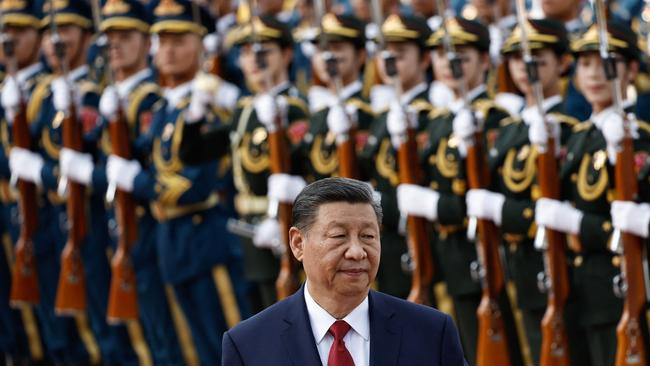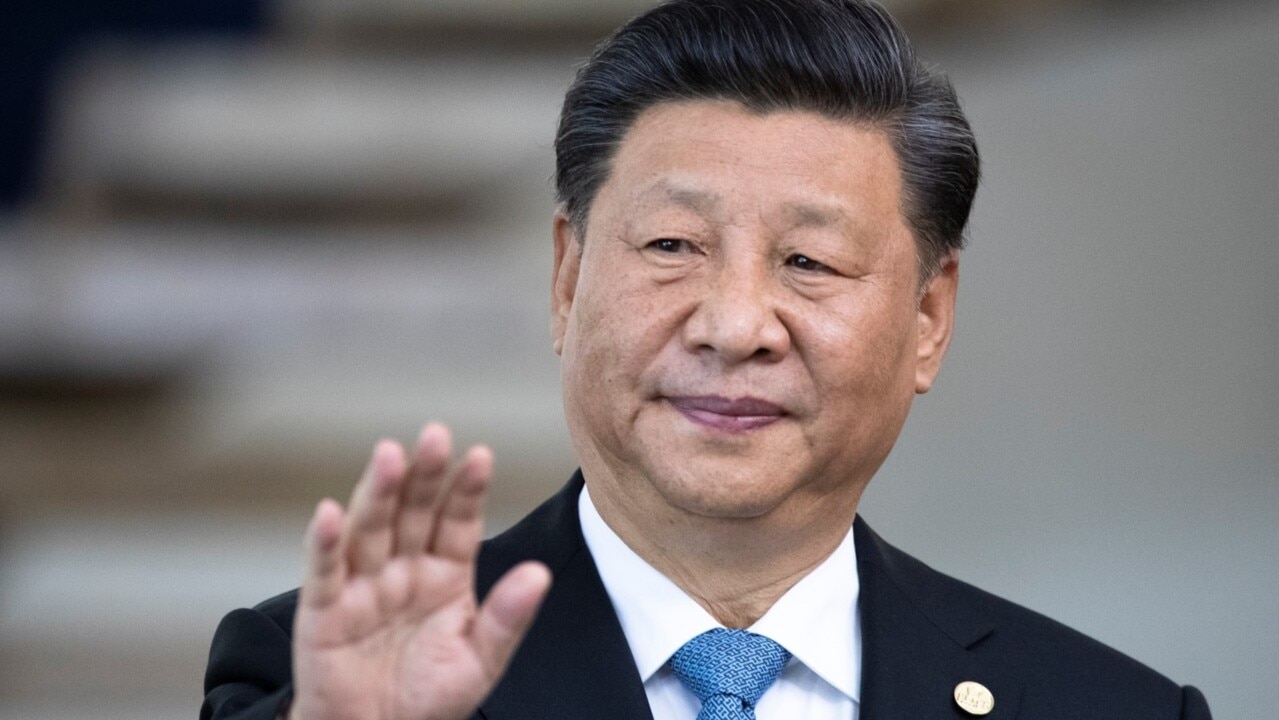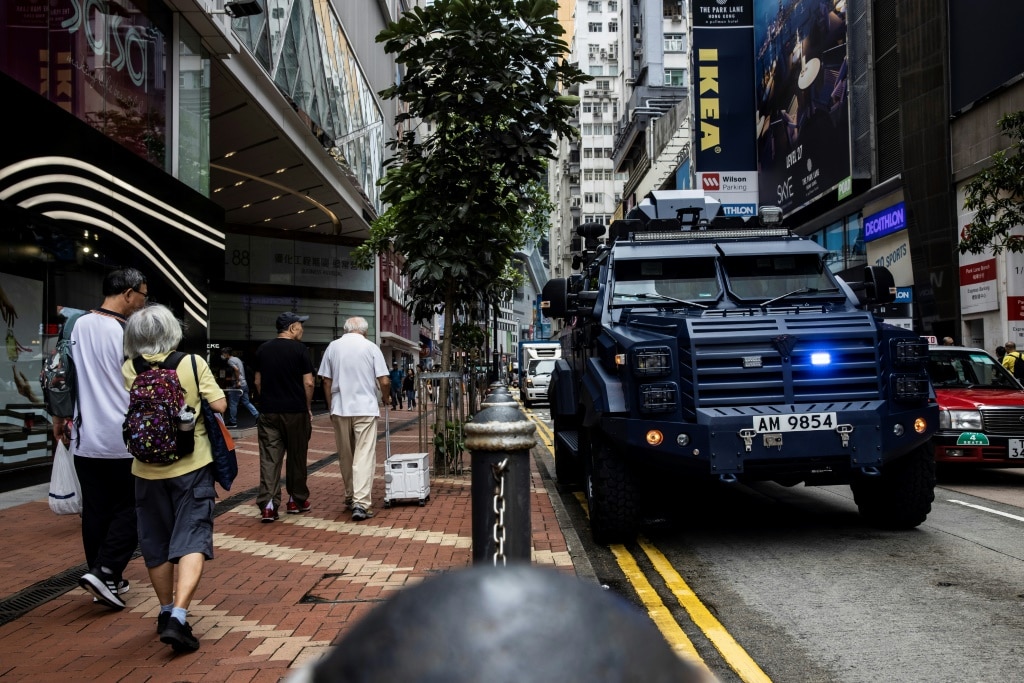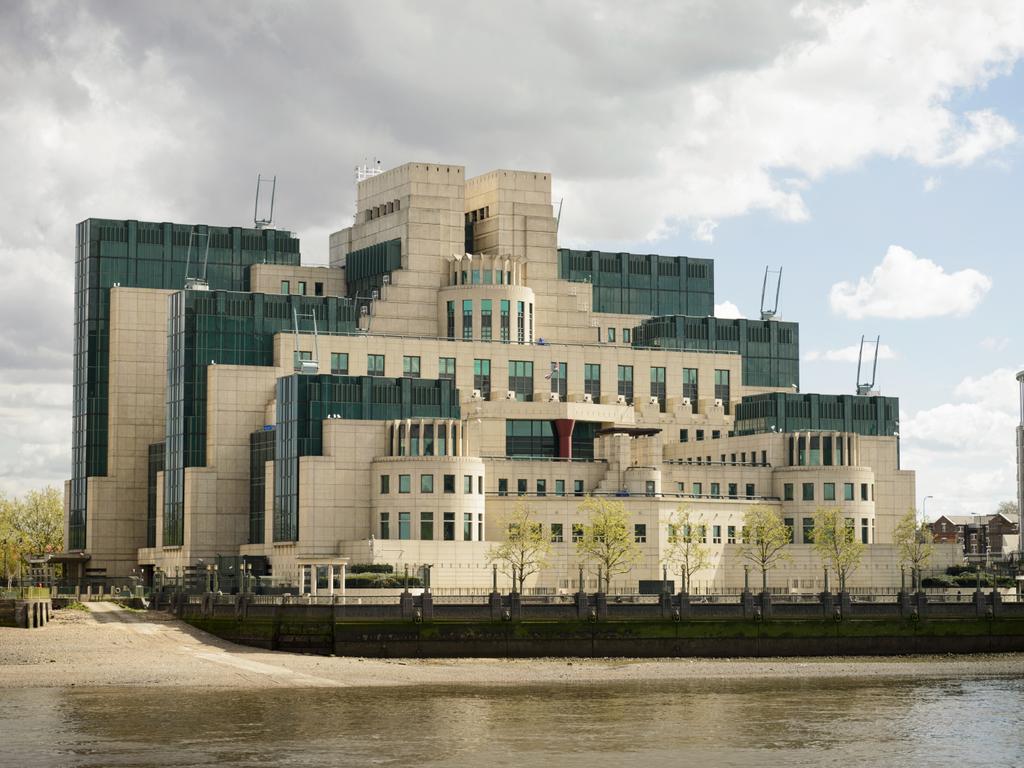Ramp up defences against Beijing’s takeover by stealth

After Lai pledged in last month’s inauguration address to defend Taiwan’s sovereignty, China staged provocative military drills close to the island’s territorial waters, justifying them as a “strong punishment” for the new leader’s impertinence and accusing Lai of being a “dangerous separatist”.
China’s President Xi Jinping says he is prepared to use force to take back the “renegade” province.
How and when this may occur is the subject of much speculation and debate among intelligence agencies and the strategic cognoscenti. The consensus is that the window for Xi to achieve the Chinese Communist Party’s historic mission of “complete reunification” by military force opens wide in 2027. It will remain open for several more years before the balance of forces begins to shift away from China as its population ages, economic problems multiply and a looming succession crisis begins to erode Xi’s authority at home.
Contrary to conventional wisdom, the greatest threat to Taiwan’s democracy may not be an invasion but Beijing’s emerging cyber strategy to take Taiwan without a fight.
A new report – How to Succeed at Annexation Without Really Fighting – by US intelligence contractor Booz Allen Hamilton says China doesn’t see a single massive cyber attack as the path to victory. Beijing intends to use cyber power as part of a matrix of intertwined strategies to undermine Taiwan politically, militarily and economically. “The aim is to isolate, weaken and absorb Taiwan in the long run” through spying, stealing data and “spreading lies” using sophisticated 21st-century information warfare, the report says.
Russia’s difficulties in pacifying Ukraine, another pesky democracy, has lessened the appeal of relying on military force alone to bring Taipei to its knees. Combining cyber power, information war and other short-of-war coercive strategies holds out the promise of a bloodless victory.
Despite its two million strong military, the world’s largest navy and a suite of missiles that puts all other countries in the shade, assaulting the tiny beaches and imposing cliffs that ring Taiwan would cost China dearly and there would be no guarantee of victory.
Failure, or even a Pyrrhic victory, could lead to a third world war and bring down the whole political edifice that sustains Xi’s rule and the CCP.

Chinese strategists believe information warfare is a critical new battlefield where Beijing can defeat US conventional military power through asymmetric advantages. It’s a natural political and cultural fit for an authoritarian state that historically has emphasised deception and psychological warfare. Beijing has taken note of Hamas’s success in winning the information war against Israel.
Expect China’s legion of hackers to sow discord among Taiwan’s political parties and attempt to cyber wedge Washington by fanning deeply rooted isolationist sentiment in the US. The same techniques will be used against Australia to reinforce the view that we should not get involved in a conflict over Taiwan.
Beijing’s industrial-level hacking of other countries’ data, elections and critical infrastructure provides real-world insights into how this strategy would work in practice.
Lai’s election greenlights China’s state-sponsored army of hackers, such as Volt Typhoon, licensing them to conduct more intensive attacks against Taiwan. Volt Typhoon already has targeted critical infrastructure in Australia and has compromised US companies successfully in key sectors of the economy such as energy, water, finance and telecommunications. The hacker group is pernicious because it recruits legitimate system tools and functions to evade detection.
A second think tank analysis by the American Enterprise Institute and the Washington-based Institute for the Study of War reaches similar conclusions to the Booz Allen report. From Coercion to Capitulation: How China Can Take Taiwan Without A War is written by seven geopolitical experts, who conclude that a CCP-orchestrated coercion campaign that remains far short of invasion could nevertheless bring Taiwan under China’s control.
In one scenario, relentless cyber, artificial intelligence and influence operations create deep internal divisions in Taiwan and convince the island’s leaders that the US would not intervene to help. At the same time, China’s hackers attack critical US infrastructure and weapons systems, delaying American intervention.
As morale plummets, Taiwan’s government agrees to join a cross-straits peace commission to avoid war, opening the way for Beijing to gradually take control of the island under the guise of open dialogue.

We and our allies are ill-prepared for such possibilities. Years in the making, China’s short-of-war coercive strategy is cleverly contrived to present Taiwan and its defenders with an unpalatable dilemma. An armed response by Taipei would allow China to present Taiwan as the provocateur and justify further coercion including military action. But a failure to respond would allow China to continue tightening the noose around Taiwan at minimal cost.
Beijing calculates that across time other countries will become conditioned to its coercion or deterred from intervention, eroding Taiwan’s will to fight. If the cost becomes prohibitive, even the US may realise that defending Taiwan no longer is an option. So, China wins without a fight.
But, as with all dilemmas, there are solutions. The key is to stand strong and increase the cost to China of each micro-aggression.
The US already is doing so by ramping up trade, tech and financial pressures on China.
Taiwan is increasing its resilience against cyber attacks and a probable blockade by hardening its critical infrastructure and building buffer stocks of food, fuel and ammunition.
Australia needs to play its part by strengthening trade, diplomatic and intelligence ties with Taiwan. We also should be prepared to call out China’s coercive practices, particularly its brazen hacks of our critical infrastructure and the personal data of Australian citizens.
Not standing up for a fellow democracy sends a clear message to friends and adversaries that our own democracy is not worth defending either.
Alan Dupont is chief executive of geopolitical risk consultancy The Cognoscenti Group and
a nonresident fellow at the Lowy Institute.







The tenure of Taiwan’s newly elected leader, President Lai Ching-te, also known as William Lai, promises to be the most challenging four years in the island democracy’s history with potentially far-reaching consequences for Australia’s security and global stability.